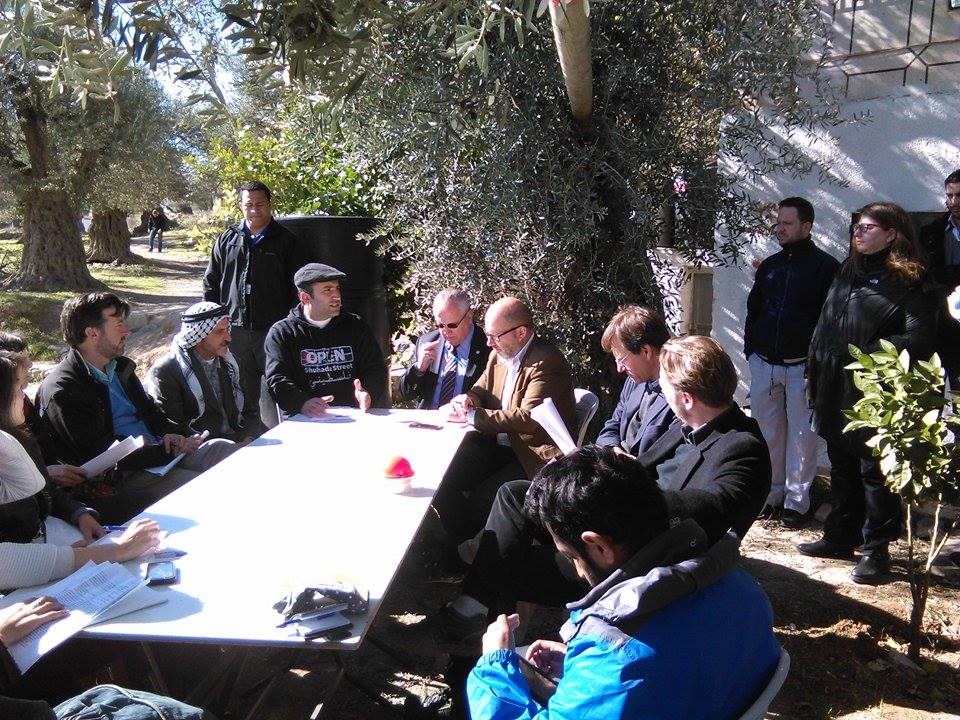Tag: Israeli Army
-
Israeli forces using skunk-water as a form of collective punishment
30th December, 2015 | International Solidarity Movement, al Khalil team | Al Khalil, occupied Palestine On 30th December 2015, Israeli forces showered the Abu Sneineh neighbourhood in occupied al-Khalil (Hebron) in tear gas and shot skunk water at family homes and a kindergarten. When students at the schools in the Abu Sneineh neighbourhood were leaving…
-
Israeli forces continue slaughtering Gazan protesters
30th December 2015 | International Solidarity Movement, Gaza Team | Gaza strip, occupied Palestine Last Friday, 25th of December another youth, 22-year-old Hani Wahdan, was killed in Shijaia in Gaza. One week before, 20-year-old Mohamed El Agha was killed in El Faraheen in Gaza. Since the beginning of October Israeli snipers have killed unarmed demonstrators along…
-
UN delegation visits H2-area of Hebron
December 12th, 2015 | International Solidarity Movement, al Khalil team | al Khalil, occupied Palestine On Tuesday, 8th December 2015, a delegation from the United Nations visited the H2 area of occupied al-Khalil (Hebron), ahead of the international Human Rights Day on 10th December. The UN-delegation visited the H2 area, under full Israeli control, to…



